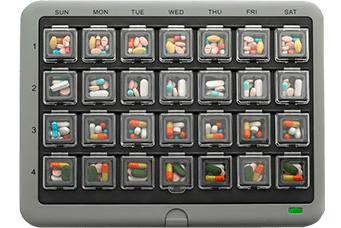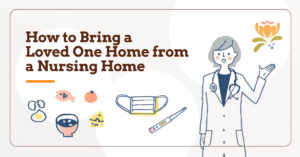Medication Errors and Seniors
Almost 90% of older adults take at least one medication each day and 41% take five or more. As the number of prescriptions and over-the-counter medicines a senior takes each day increases, so do the opportunities for errors. According to the Institute of Medicine, medication errors cause 770,000 people to be sent to an emergency department every year.
For caregivers of a Connecticut senior or loved one with a disability, finding safe ways to help them manage their medications may be the difference between staying independent at home and having to move to a senior housing community. Fortunately, there are an increasing number of technologies that can help.
Medication Management Systems
A line of easy-to-use medication management technologies include the MedReady products. They all earn good reviews from adult children and family caregivers. These systems keep medications safely locked in a dispenser. When it is time for a dosage, a compartment with the medicine opens and an alarm sounds. You can also select a model that adds a flashing light to provide a visual cue that it is time to take a medication or one with a call center feature that notifies a caregiver if a medication dosage is missed.
Another line of medication management technology products that receive good reviews are the MedMinder systems. Part of the success of these products is that they use cellular technologies to notify caregivers and adult children if a dose is missed.
These dispensers can be set up to accommodate multiple medications. When it is time to take one of the medications, the user can be alerted with both visual and auditory cues. That is an important feature for older adults with vision and hearing impairments. If the senior doesn’t take the medication at the prescribed time, the MedMinder system will alert the caregiver by email, text or phone.
If you need help determining which system best meets the needs of the Connecticut senior you love, please call us at (203) 235-TECH (8324). We will be happy to help!







